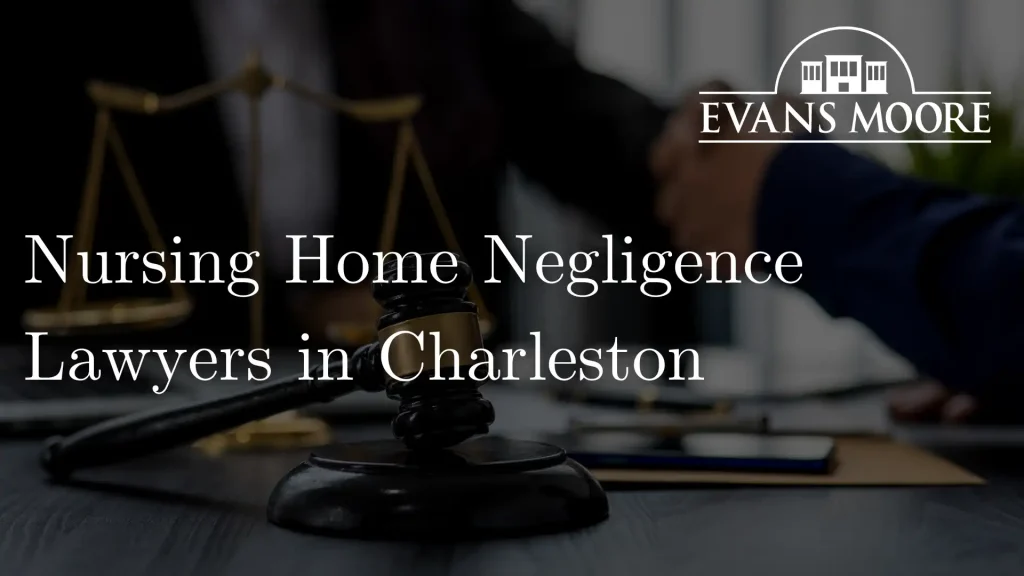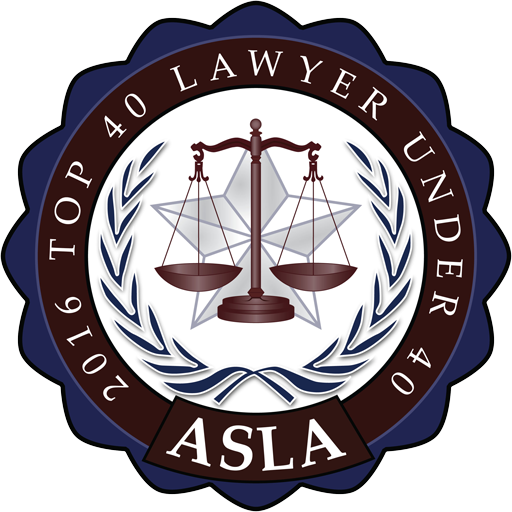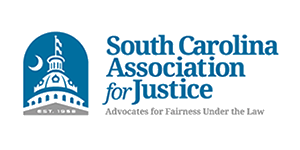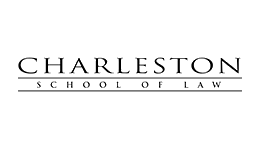 Nursing home residents have a right to expect attentive and respectful care and treatment from facility staff and ownership. Sadly, the care provided in these homes often falls unacceptably short of these expectations. Studies have estimated that up to 44% of nursing home residents may have faced outright abuse, with an even higher likelihood in South Carolina.
Nursing home residents have a right to expect attentive and respectful care and treatment from facility staff and ownership. Sadly, the care provided in these homes often falls unacceptably short of these expectations. Studies have estimated that up to 44% of nursing home residents may have faced outright abuse, with an even higher likelihood in South Carolina.
Residents who have suffered as a result of neglect may be legally entitled to compensation. If you suspect that nursing home neglect has caused you or a loved one injury, call Evans Moore, LLC today. Our experienced and nationally recognized Charleston nursing home negligence lawyers are ready to help get the justice your loved one deserves.
Why You Need a Lawyer
If you are seeking to bring a claim against a home, it’s especially important to hire a lawyer who can help you gather the evidence you need to successfully prosecute your case. Signs of nursing home negligence may not be obvious, and at-fault parties will often vigorously push back against these claims. For example, defense attorneys will often try to claim that pressure ulcers, a common result of nursing home neglect, were caused by diabetes. They might insist that other injuries, even fatal ones, were medically unpreventable and unrelated to neglect. Even when you think you can prove that abuse has occurred, you may find your claim refuted by a skilled and unscrupulous defense.
It often takes an experienced investigator to be able to definitively prove that neglect has occurred and led to injuries. A Charleston lawyer with experience in nursing home negligence will know where to look for the necessary evidence, while also looking for a history of suspicious conduct in the home itself.
Why Choose Evans Moore, LLC
With your loved one’s health and safety at stake, it’s especially important to entrust your case to a firm you can trust. At Evans Moore, LLC, we have quickly built up a national reputation in passionately defending the rights and dignity of our clients. In the nine years since our finding, we have secured our clients over $100 million in damages in cases ranging from medical malpractice to nursing home abuse.
This has won us awards and recognition from some of America’s most prestigious legal organizations. Our attorneys have been included among the American Society of Legal Advocates’ Top 40 Lawyers Under 40 and were cited in 2017’s 10 Best Attorneys for Client Satisfaction by the American Institute of Personal Injury Attorneys.
At Evans Moore, LLC, we offer families sensitive and honest advice about how to proceed in these difficult circumstances. All of our clients work with the firm’s two partners, James B. Moore III, and Scott Evans, in crafting a comprehensive strategy for their cases. Both former Federal and State Court trial judges, Evans and Moore have worked together for the past nine years to hold negligent parties accountable for their actions.
Cases We Handle
 Nursing home negligence can take many forms, and lead to various kinds of mental and physical harm. Some of the most common claims resulting from nursing home negligence include the following:
Nursing home negligence can take many forms, and lead to various kinds of mental and physical harm. Some of the most common claims resulting from nursing home negligence include the following:
Slip and Falls
Slip and falls are perhaps the most common cause of injury among nursing home residents. According to a recent paper, more than 50% of nursing home residents fall every year, with about 50% of this population falling repeatedly. Injuries from falls can be serious, ranging from lacerations and fractures to severe brain injuries. They can, and frequently do, prove fatal – injuries from falls are the most common cause of accidental death among those older than 65.
Many of these falls are unpreventable. But a significant proportion results from the negligence of nursing homes. According to the CDC, as many as one quarter of all falls in nursing homes happen as a result of environmental hazards like poor lighting or slippery floors. Others may occur because of the lack of a fall prevention program. This might mean that the hospital lacked the trained staff or proper equipment that would have prevented the fall from happening.
Bedsores
Bedsores, also known as pressure ulcers, occur as a result of prolonged pressure on a particular part of one’s body. This pressure causes tissue damage immediately underneath one’s skin, causing painful and long-lasting sores. Left untreated, bedsores can be fatal.
Bedsores can be very common among nursing home resident who can no longer walk and must remain confined to their bed or a chair. What makes this so shocking is that with proper care these injuries should never occur at all. By frequently moving the limbs of immobile patients and keeping them well-hydrated, caregivers can drastically reduce the chances of nursing home residents developing bedsores. If someone you know has developed bedsores in a nursing home, you should scrutinize the conditions of the home and the care provided. They may have arisen from the inattention or neglect of nursing home staff.
Medication and Prescription Errors
Residents of nursing homes are often dependent upon staff in order to receive the correct types and quantities of medication. The careless mistakes of nursing home staff can have extremely damaging effects on residents. Medication negligence can include failing to administer drugs in a timely manner, or giving residents the wrong drugs altogether. It can also involve the improper use of medication as a means of sedating residents for the convenience of staff. One 2014 government study found that approximately 37% of the adverse events which affected patients in skilled nursing facilities involved medication errors.
Nursing Home Negligence by the Numbers
The statistics regarding nursing home neglect and abuse are truly shocking. A 2000 study conducted by the National Center Elder Abuse interviewed more than 2,000 nursing home residents, finding that:
- 44% of the residents interviewed had experienced some form of abuse
- 95% of the residents reported being the victim of neglect or seen others neglected.
If we extrapolate this to the number of South Carolina, we are left with a staggering potential 7480 out of approximately 17,000 residents that may have experienced mistreatment at some point. Unfortunately, this estimate might be sustained in reality. Out of the 50 states ranked for their protections against elder abuse, South Carolina came in last.
Frequently Asked Questions
Do you have questions about nursing home abuse? Do you suspect that a loved one has been mistreated in a facility? Read these frequently asked questions and be sure to contact Evans Moore, LLC at (843) 938-6267 to speak with one of our experienced nursing home abuse attorneys right away.
What is the difference between nursing home neglect and abuse? Are these the same things as negligence?
The National Institute of Aging, like many other groups, groups elder neglect under a broader list of behavior classified as elder abuse. Other kinds include physical, emotional, or even financial abuse. Essentially, neglect happens when a caregiver does not adequately respond to the needs of a patient who cannot care for themselves. This can be intentional or unintentional.
Nursing home negligence, however, is not the same thing as neglect. Negligence refers to a legal concept which can be used in a variety of settings, from car accidents to supermarket slip and falls. It means that somebody had an obligation to provide a reasonable level of care toward another person and failed to live up to it, causing this person harm. Within nursing homes, this negligence might take the form of elder neglect – for example, letting a resident develop bedsores by not moving them enough. But it might also involve acts of carelessness which could occur anywhere, as with falls caused by dangerously slippery floors.
Who is responsible for nursing home negligence?
Individual acts of nursing home negligence may perhaps seem like the responsibility of individual employees. However, in most cases, the nursing home itself can be held responsible for any negligence which has occurred. They might be liable for having failed to properly screen, train, or monitor their staff, or for failing to adequately maintain their premises. Depending on the situation, you may be able to hold any of the following parties responsible:
- Individual employees or caregivers
- The nursing home itself
- Third-party suppliers to the home
Nursing homes will have far more funding to pay compensation than individual caregivers. Holding them responsible for the actions of their staff is not only morally correct, but also financially beneficial to families choosing to sue.
What does it take to prove nursing home negligence?
In order to legally prove negligence, you must be able to show that your loved one suffered harm as a direct result of a party’s action (or inaction). This can be particularly difficult in the case of nursing home negligence. Victimized parties often lack the ability to articulate their mistreatment, while there may be few other records documenting the wrongful actions of staff. However, some possible helpful evidence may include:
- Photographs of any injuries, including bruises, bedsores, and cuts.
- Medical records, including treatment plans
- The results of a medical screening
- Observations of family members
Establishing evidence of nursing home negligence can be difficult, but an experienced lawyer will know where to look for proof of mistreatment. If you suspect that nursing home negligence may have caused harm to a loved one, your best option is to contact a lawyer with experience in this field.
Call Evans Moore, LLC Today
Nursing homes are entrusted with the care of one of our most vulnerable populations. Even seemingly minor mistakes can cause immense suffering among nursing home residents, who often lack the ability to speak out about their discomfort.
If you suspect your loved one suffered harm as the result of nursing home negligence, contact (843) 938-6267 today for a free consultation with one of our attorneys. We want to help your loved one get the justice they deserve.









